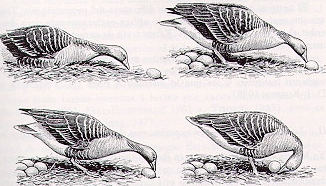Our minds work in mysterious ways. We have yet to figure out this maze of neurons and grey matter that we call a brain. Yet, psychologists have come a little bit closer to unlocking one mystery of the brain and how it works on sleep deprivation, but it is not what most people would expect. We are more likely to think of creative solutions when we are sleep deprived.
Think about it.
I know I have had an issue on my mind, and someone tells me to sleep on it. Often the opposite will end up happening, and I stay up all night problem solving. To me this is when I put so much pressure on that idea that eventually it explodes into a solution like a volcano. A volcano that is very chaotic, many solutions spew out all at once. That is how creativity often works.
There are many reasons as to why this happens. The main reason is, functional fixedness finally becomes secondary to creativity. Your mind is not running as efficiently as it should and that is exactly what your creativity needs. Your brain has been preoccupied with categorizing all day. Finding neat little boxes to put things in. Once something is in a box it is hard to look at it in any other way and that is how someone can get stuck in functional fixedness. Pure analytical work is done when your brain is running on all cylinders. Often the analytical unit (the side that creates functional fixedness) of your brain conflicts with the creative side of your brain. Most people use there analytical unit more, so the creative part takes a back seat.
This is a lot of work for your brain. The process is so taxing that when you are tired, your brain finds it not worth the energy it takes to be functionally fixed. Your brain tells yourself all day this is the way things are; this is the way things make sense. Your brain on sleep deprivation, does not have to make sense. Your brain does not have to except things as they are. Finally, your brain can start to entertain fascinating, innovative, and sometimes ridiculous solutions (even the most ridiculous solutions can sometimes be the best part of the brain storming process).
Our minds become more easily distracted, and go off on tangents. These tangents are ideas that creativity craves. You are more likely to think out of that box that your brain has spent all day organizing things in. Information is no longer crammed but is free to flow. Finally an idea surfaces. Thanks to a fatigued brain, creativity has finally managed to drown functional fixedness and you have a great problem solving idea that you will conquer your world with...or at least conquer a problem that keeps you up at night.






